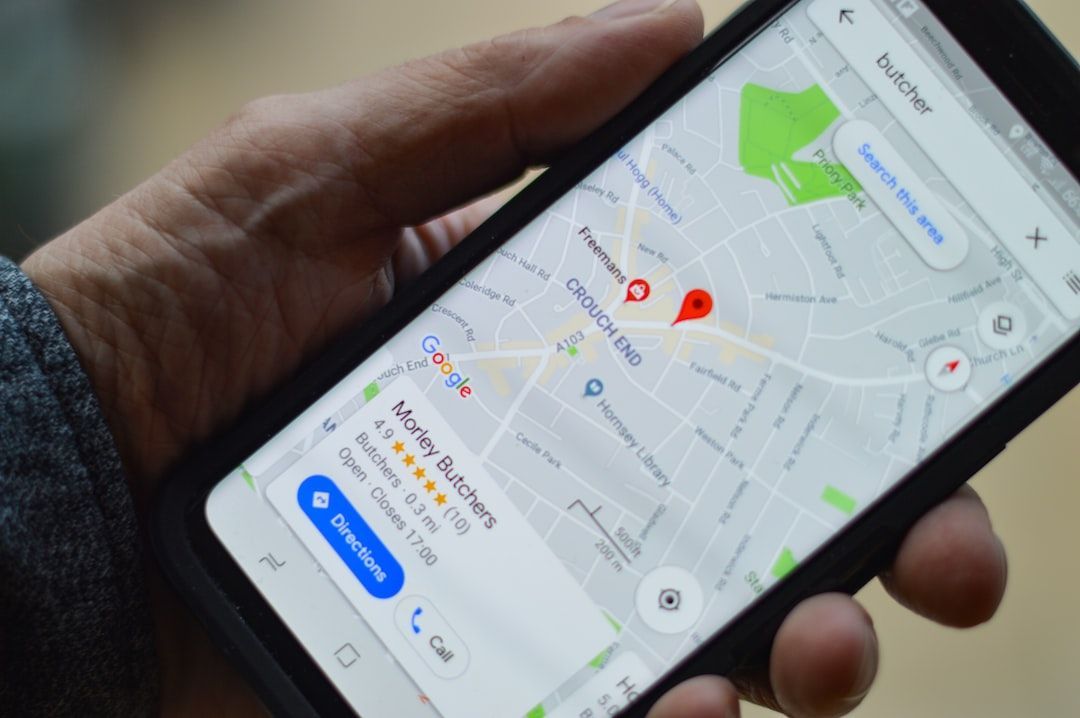6 Ways Small Businesses Can Use Local SEO To Increase Leads In 2024

Unlocking the Potential of Local SEO for Small Businesses
In the digital era, where competition for visibility is fierce, small businesses must leverage every tool at their disposal to stand out and attract more customers. Local SEO is one of the most effective strategies for businesses targeting customers in their geographic area. By optimizing for local search queries, businesses can increase their online presence, drive more foot traffic, and ultimately, boost their leads. In this blog, we will explore six practical ways small businesses can utilize local SEO tactics to gain a competitive edge and attract more leads.
Utilizing Location-Specific Keywords
Utilizing location-specific keywords is a cornerstone strategy for enhancing local search engine optimization (SEO) for small businesses. This approach involves carefully selecting and integrating keywords related to your business's location into your website's content. By doing so, you increase your visibility in local search results, making it easier for potential customers in your area to find you. Here's a deeper look into how this strategy can be effectively implemented to drive more leads for your local business:
Researching and selecting local keywords for your small business
- Identify Your Offerings and Audience: Begin by clearly understanding the products or services your business offers and their relevance to your local target audience. This understanding is crucial for identifying keywords that are not only relevant to your business but also to the needs of your potential customers.
- Utilize Keyword Research Tools: Tools like Google Keyword Planner and SEMrush are invaluable for finding keywords that are specific to your location, have a high search volume, and have low competition. These tools can provide insights into what your potential customers are searching for in your area.
- Incorporate Long-Tail Keywords: Long-tail keywords, which are longer and more specific phrases, can be highly effective. They often have less competition and can attract more qualified leads. Examples include "best coffee shop in [city]" or "top [service] provider in [neighborhood]."
- Analyze Competitors: Looking at your competitors' websites can offer insights into the local keywords they're targeting. This analysis can help you find gaps in their strategies and opportunities to differentiate your business.
Incorporating local keywords into website content
- Optimize Website Elements: Incorporate local keywords into critical elements of your website, such as title tags, meta descriptions, headings, and body content. This helps search engines understand the local relevance of your business.
- Ensure Natural Content: While it's important to include local keywords, your content should remain natural and valuable to your audience. Avoid keyword stuffing, as it can negatively impact your SEO efforts.
- Utilize URLs and Images: Implementing local keywords into your website's URL structure and image file names can further optimize your site for local search.
- Create Localized Content: Developing content like blog posts, case studies, or testimonials that focus on local issues, events, or interests can enhance your visibility in local search results. Incorporate your targeted local keywords into this content for added impact.
Monitoring and adjusting keyword usage based on search data
- Track Performance: Use website analytics tools to monitor how well your local keywords are performing. Look for insights into traffic patterns, engagement rates, and conversion rates. This won't happen instantly. Give it a few months before making any changes to your keywords if you aren't seeing any results.
- Adapt to Trends: Be prepared to adjust your keyword strategy based on search trends, seasonal variations, or new local interests that emerge. Staying adaptable ensures your content remains relevant and visible to your target audience.
- Continuous Optimization: The digital landscape is always changing, so it's essential to keep your website content updated and optimized. Regularly revisiting and refining your keyword strategy is key to maintaining and improving your local SEO performance.
- Professional Assistance: Consider seeking help from a local SEO agency like R.I.S.E. Online Marketing Strategies. Professional guidance can ensure your keyword strategy is well-planned, implemented effectively, and optimized for the best possible results.
Optimizing Google Business Profile Listing (Formerly Google My Business)
Optimizing your Google Business Profile (formerly Google My Business) is a vital strategy for increasing leads for your local business. By accurately and comprehensively filling out your profile, including business hours, contact information, services, and photos, and regularly updating it with posts and offers, you enhance your visibility in Google's local search results and on Google Maps. This increased visibility makes it easier for potential customers to find and choose your business over competitors. Furthermore, a well-optimized profile provides valuable information that can help customers make informed decisions, encouraging them to engage with your business directly through the platform. Essentially, by effectively managing your Google Business Profile, you're not only improving your online presence but also making it simpler for local customers to connect with your business, ultimately leading to an increase in leads and potential sales.
Optimizing Listing for Maximum Local SEO Impact
To optimize your Google Business listing for local SEO, follow these actionable steps:
- Claim and verify your listing to gain control over the information displayed.
- Ensure all business information is accurate, consistent, and up-to-date, including your business name, address, phone number, and website URL. Don't forget to add your social media profiles to your listing if you haven't done so yet since that is a recent addition to profile listings.
- Add high-quality, relevant images to showcase your products, services, and facilities.
- Select appropriate categories and subcategories for your business to improve search relevance.
- Write a compelling business description that highlights your unique selling points and includes relevant local keywords.
Encouraging and Managing Customer Reviews
Customer reviews are an essential component of your listing and local SEO strategy. They provide valuable social proof and help build trust with potential customers. Follow these steps to encourage and manage customer reviews:
- Request reviews from satisfied customers through email, social media, or in-person interactions.
- Respond to both positive and negative reviews promptly and professionally, demonstrating your commitment to excellent customer service.
- Monitor your reviews regularly to identify trends, address any issues, and maintain a positive online reputation.
Building and Managing Local Business Listings and Citations
Building and managing local business listings and citations play a crucial role in achieving this goal. These listings and citations not only serve as digital touchpoints for potential customers but also significantly influence a business's local search engine optimization (SEO) performance.
Identifying and claiming relevant local business listings
- Start by researching local business directories and platforms where your small business can be listed, such as Yelp, Foursquare, and Yellow Pages. You may not use these directories regularly yourself, but claiming/creating your listing on them increases your online exposure.
- Claim your business listing on these platforms, ensuring all information is accurate and up-to-date.
- Consider niche directories specific to your industry or region to reach a more targeted audience.
Ensuring consistent NAPW information across all listings
- Confirm that your business name, address, phone number, and website (NAPW) information is consistent across all listings to avoid confusion for potential customers and to improve search rankings.
- Update your NAPW information whenever there are changes, such as a new address or phone number, to maintain accurate listings.
- Utilize tools like Brightlocal or our Listings tool to help manage your business information across multiple platforms and directories.
Tracking and monitoring citations for accuracy and updates
- Regularly review your business listings and citations to ensure all information remains accurate and up-to-date.
- Monitor for any new citations or changes in existing citations that may impact your local SEO efforts.
- Address any inaccuracies or inconsistencies as soon as possible to maintain a strong online presence and search rankings.
Utilizing Local Content and Social Media Marketing
One of the most effective ways to increase leads from local SEO for small businesses is through creating and sharing locally focused content and engaging with your community on social media. Here are some actionable steps to help you leverage local content and social media marketing for your small business:
Creating Locally Focused Content for Your Website and Blog
- Identify topics and themes relevant to your local audience and industry.
- Tailoring content to local interests and industry trends resonates more with your target audience, making your business more relatable and top-of-mind for local consumers.
- Include local keywords and phrases naturally within the content to improve local search visibility. Using local keywords enhances your visibility in local search results, making it easier for potential customers to search for local solutions to find your business.
- Highlight your involvement in the community, such as sponsoring local events or partnering with other local businesses. Showcasing your participation in local events or collaborations highlights your business’s commitment to the community, fostering trust and encouraging local support.
Sharing Content on Local Social Media Channels
- Establish a strong presence on social media platforms popular among your local audience, such as Facebook, Instagram, or X. Don't limit yourself to only the biggest platforms because your target audience may be on other platforms such as Reddit and Discord. Being active on social media platforms where your local audience spends their time increases your brand’s visibility and accessibility to potential customers.
- Utilize local hashtags and geotags to increase the visibility of your content in local searches and feeds. Regularly sharing locally relevant content keeps your audience engaged, while local hashtags and geotags improve the discoverability of your posts in local searches and feeds.
- Collaborate with local influencers or other businesses to share your content and expand your reach. Partnering with local influencers or businesses to share your content can significantly extend your reach and introduce your business to a broader local audience.
Engaging with Local Customers and the Community on Social Media
- Monitor and respond to comments, messages, and reviews from your local audience, showing appreciation for their support and addressing any concerns. This demonstrates your business’s dedication to customer satisfaction and helps build stronger relationships with local customers.
- Participate in local discussions, events, or groups on social media to stay connected with your community and showcase your expertise. Participating in these discussions positions your business as an industry leader and trusted local source, enhancing your reputation and attracting more leads.
- Encourage user-generated content by asking your customers to share their experiences or photos with your products or services, using a branded hashtag. Encouraging customers to share their experiences with your business increases social proof and trust among potential customers, while contests and promotions generate excitement and engagement, further increasing your local visibility and lead generation potential.
- Host local contests, giveaways, or promotions on social media to attract more local leads and drive engagement
Local Link-Building Strategies
Local link building is an essential aspect of local SEO for small businesses. By creating a strong network of local links, businesses can boost their online presence and improve search engine rankings. Here are some actionable steps to implement effective local link-building strategies:
Identifying Local Link-Building Opportunities
- Research local directories, blogs, and websites relevant to your industry or target audience. Look for highly regarded local directories, blogs, and websites where you can list your business or contribute content. Prioritize those most relevant to your industry for higher-quality links.
- Explore local community groups, associations, and chambers of commerce for potential collaboration and link opportunities. Connect with local community groups, associations, and chambers of commerce. Membership or active participation can offer valuable link opportunities from trusted local sources.
- Monitor local news and events to identify link-building opportunities that align with your business's values and goals. Offer your expertise, products, or services as part of these events to gain coverage and backlinks from local news websites.
- Conduct competitor analysis to identify their link-building strategies and potential untapped opportunities. Use SEO tools to help you discover where they are getting their links from and identify opportunities you might have overlooked.
Collaborating with Local Businesses and Organizations
- Partner with other local businesses to create mutually beneficial content, such as joint blog posts, case studies, or promotional campaigns.
- Participate in local events, sponsorships, or community initiatives to increase visibility and build relationships with other local businesses.
- Offer your expertise or services to local organizations in exchange for a link on their website or social media channels.
- Host joint webinars, workshops, or seminars with other local businesses to share knowledge and attract a larger audience.
Promoting Local Events and Initiatives Through Link Building
- Create and share content related to local events, such as blog posts, social media updates, or email newsletters, including links to relevant websites and resources.
- Reach out to local influencers and bloggers to secure coverage and backlinks for your events or initiatives.
- Utilize social media and online forums to engage with the local community and promote your events, while sharing links to your website or blog.
- Submit press releases or news updates to local media outlets to gain coverage and backlinks for your events or initiatives.

Monitoring and Measuring Local SEO Success
For small businesses, it is crucial to monitor and measure the success of your local SEO efforts. By doing so, you can make data-driven decisions to refine your strategy and improve your results. Here are four actionable steps to help you monitor and measure your local SEO success:
Setting Goals and Key Performance Indicators ( KPIs) for Local SEO Efforts
- Define specific, measurable, achievable, relevant, and time-bound (SMART) goals for your local SEO campaign.
- Identify key performance indicators (KPIs) that align with your business objectives, such as organic search traffic, local search rankings, and conversion rates.
- Set benchmarks and targets for each KPI to track progress and measure success.
Tracking Progress and Results through Analytics and Reporting
- Utilize tools like Google Analytics and Google Search Console to track your website's performance in local search results.
- Monitor the performance of your local keywords and adjust your strategy as needed.
- Create regular reports to analyze your local SEO efforts and identify areas for improvement. Remember, improving your SEO takes time to see direct results so don't be discouraged if you don't see a difference in the short term.
Adjusting Local SEO Strategy Based on Data-Driven Insights
- Analyze the data collected from your analytics and reporting tools to identify trends, patterns, and areas for improvement.
- Test new strategies and tactics to address the identified issues, such as optimizing content, building local backlinks, or improving your Google
- Business listing.
- Continuously refine your local SEO strategy based on the insights gained from your data analysis and testing.
Conclusion
Small businesses can boost their leads by embracing local SEO tactics. Key strategies include using location-specific keywords, optimizing Google Business Profile listings, managing customer reviews, and ensuring information consistency across online directories. Additionally, engaging with local audiences through social media and creating content that resonates with community interests can further increase visibility. Implementing local link-building efforts and regularly monitoring SEO performance through analytics are also vital. By adopting these approaches, small businesses can enhance their online presence, attract more customers, and stay competitive in their local markets.
Leveraging R.I.S.E. Online Marketing Strategies' Local SEO Services
As a small business owner, implementing a local SEO strategy can be overwhelming. To help you navigate this process, we offer customized local SEO services tailored to your unique needs. With our customized approach and expert guidance, your small business will be well-positioned to generate more leads and grow your customer base. Don't miss out on this opportunity to boost your online visibility and reach your target audience – explore our local SEO services today!

